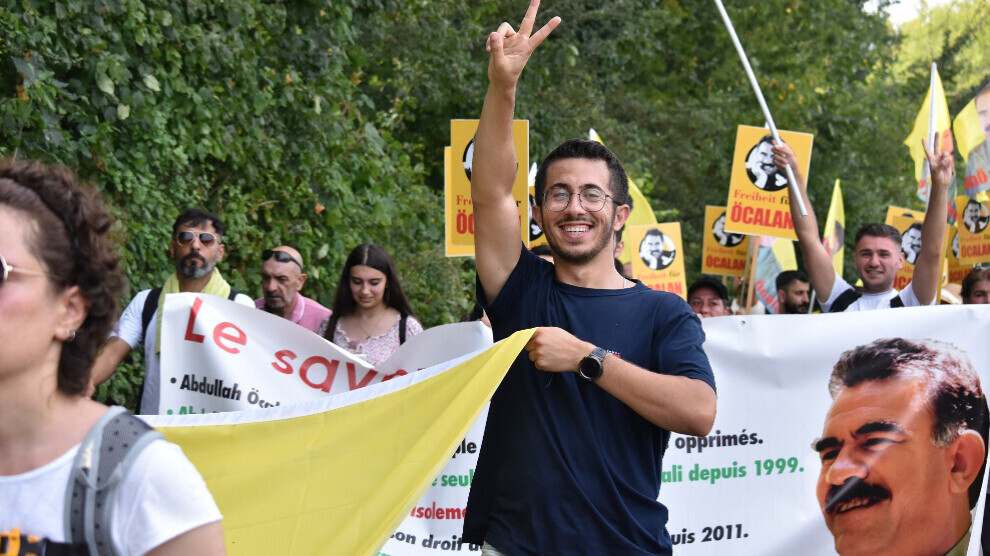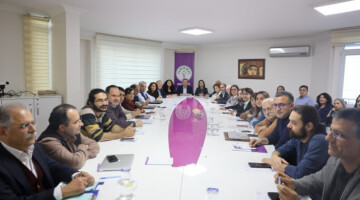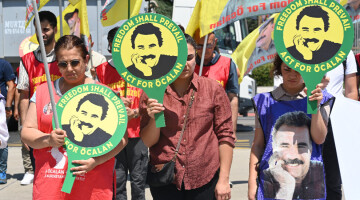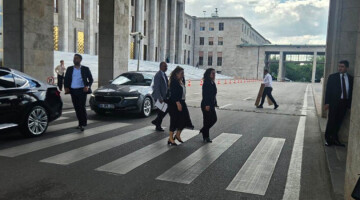The Kurdish youth movement TCŞ (Tevgera Ciwanên Şoreşger) and the movement of militant young women (TekoJIN) demanded the release of Kurdish people's leader Abdullah Öcalan, who was abducted to Turkey on 15 February 1999, and a solution to the Kurdistan question with a long march (Meşa Dirêj) in Switzerland.
The march ended in front of the United Nations headquarters in Geneva. On the approximately fifteen-kilometer-long route, the activists informed people on Saturday about the importance of Abdullah Öcalan for a solution to the Kurdish question. As the demonstrators passed the Turkish consulate, their anger at the Erdoğan regime was made clear with slogans.
Another long march will take place in Germany in mid-September. From September 15 to 20, Kurdish and internationalist activists will demonstrate together for the freedom of Abdullah Öcalan.
The event will kick off in Bielefeld. The action is part of the global campaign "Freedom for Abdullah Öcalan and a political solution to the Kurdish question"; activists from Germany, France, Austria, England and other countries in Europe are expected.
Background:
Abdullah Öcalan was last visited by his lawyers in 2019, while his last family visit was in 2020. In March 2021, a wave of international protests enabled a telephone conversation between Öcalan and his brother, but it was interrupted after a few minutes for unknown reasons.
Since then, there has been no sign of life from Öcalan and his three fellow prisoners, Ömer Hayri Konar, Hamili Yıldırım and Veysi Aktaş. Requests for visits from the Istanbul law firm Asrin, which represents the four Imrali prisoners, have been rejected by the Turkish judiciary, and requests for information remain unanswered. As a legal cover, extended disciplinary penalties are imposed in the prison system every six months. International initiatives to lift the isolation on Imrali are also ignored in Ankara.
The European Committee for the Prevention of Torture (CPT) found after a visit to the island prison Imrali in 2019 that incommunicado detention is contrary to international human rights standards. The ban on visits by lawyers violates the United Nations (UN) Standard Minimum Rules for the Treatment of Prisoners (Nelson Mandela Rules), updated in 2015, the recommendations of the Council of Europe's Anti-Torture Committee (CPT) and the Turkish Prison Law.













